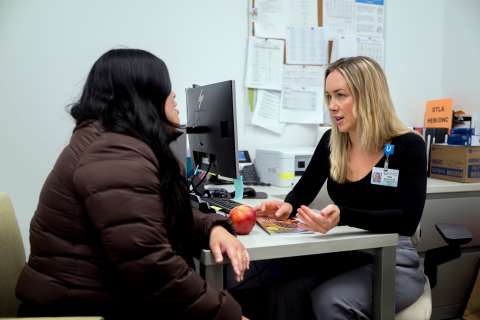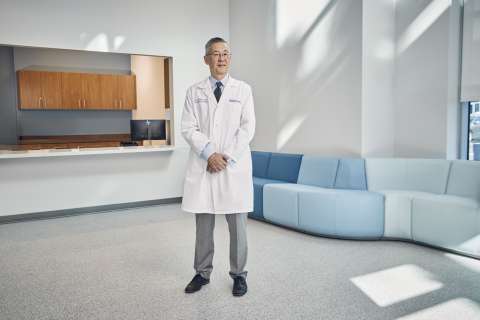Just days after graduating high school in December 2024, 17-year-old Sophie Clibborn woke up with an intense headache, unlike anything she had ever experienced.
She had occasional headaches earlier in the year that were attributed to glandular fever, but this one felt different.
"I just felt really sick,” Clibborn said. “I had this insane headache like I’ve never had before. I literally couldn’t move."
The next thing Clibborn remembers is collapsing to the floor in her bathroom. After that, everything was a blur.
Her parents rushed her to the hospital where a CT scan revealed a fist-sized tumor in her brain. Doctors in New Zealand performed emergency surgery, though they weren’t optimistic she would survive.
Despite the odds, Clibborn pulled through—but that was only the beginning. Soon after, she received a devastating diagnosis: glioblastoma, a highly aggressive and life-threatening brain tumor.
Glioblastoma grows and spreads quickly and is notoriously resistant to standard treatments such as surgery, chemotherapy and radiation.
For a teenager like Clibborn, the diagnosis was devastating.
“I’d just graduated high school, had my whole life ahead of me, and suddenly I was being told I had the deadliest brain cancer,” Clibborn said. “It was awful.”
Defying the cancer patient stereotype
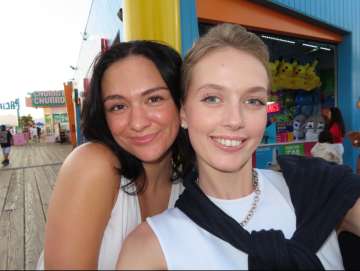
Soon Clibborn began radiation treatment and intense chemotherapy to destroy any remaining tumor cells in her brain after surgery. It was at this time that she decided to post her journey on TikTok. Instead of posting sad or heavy content, she leaned into humor as a way to process her experience and connect with others. Her first post immediately went viral.
“My TikToks were more comical,” Clibborn said. “I wanted people to see that I wasn’t just lying in a hospital bed being sad. Humor was my way of coping.”
Through the platform, she met Allison Pickard, another young woman diagnosed with glioblastoma who was receiving treatment at UCLA Health.
“I didn’t want to fit the narrative of what a cancer patient looks like,” Clibborn said. “And I saw this girl, Allison, and she wasn’t that narrative to me either. Her videos were very positive and just kind of gave me a new outlook.”
That outlook became critical when Clibborn learned her tumor had returned just a few months later. Unfortunately, recurrence is common with many brain tumors despite treatment.
Doctors in New Zealand said there were no other options, that her only choice was palliative care. Facing that reality, she knew she would have to look beyond her home country for hope.
Finding advanced treatment thousands of miles away
With her family and Allison’s support, Clibborn, now 18, sought a second opinion at UCLA Health, where she was introduced to neurosurgeon Richard Everson, MD, who specializes in complex surgery for malignant tumors such as Clibborn’s.
Because Clibborn’s tumor recurred in a sensitive area of the brain near the motor cortex, where conventional surgery risked impairing movement in her arm and leg, Dr. Everson, an assistant professor of neurosurgery at the David Geffen School of Medicine at UCLA and investigator in the UCLA Health Jonsson Comprehensive Cancer Center, recommended stereotactic laser ablation.
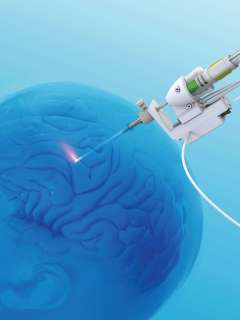
Laser ablation is a minimally invasive procedure that uses magnetic resonance imaging (MRI) to guide a laser directly to the tumor and destroy it with focused energy. The laser is a fiber-optic probe that allows surgeons to target the tumor precisely without creating a large opening.
UCLA Health is among a select number of hospitals in the country with the expertise and technology to perform this procedure, and is one of the leading centers offering it on the West Coast. The treatment requires specialized training and close coordination between neurosurgeons, radiologists and oncologists.
The procedure relies on advanced imaging, including a type of scan called diffusion tensor imaging that maps the brain’s pathways and critical structures, to help doctors plan a safe path to the tumor. Dr. Everson works closely with Benjamin Ellingson, PhD, and Noriko Salamon, MD, PhD, to analyze the tumor, identify the most aggressive areas, determine the optimal biopsy site and guide the laser to the precise location.
“At the end of the procedure, all that’s left is a tiny cut about the size of my pinky finger, which we close with a single stitch,” Dr. Everson said. “Instead of spending nearly a week in the hospital, most patients are able to go home the next day.”
Clibborn knew this was the right choice for her. The minimally invasive nature of the procedure, combined with the expertise of Dr. Everson and his team, gave her confidence that she could undergo treatment without the extended recovery and risks of conventional brain surgery.
Along with the surgery, her team also explored a clinical trial led by neurosurgeon Anthony Wang, MD. They discovered that Clibborn’s tumor carried a rare G34 mutation, found in only a handful of people worldwide at any given time. Dr. Wang is developing a dendritic cell vaccine designed to target this mutation. During the procedure, Dr. Everson performed a biopsy and collected tissue, which is being preserved for possible enrollment in the trial, offering her another treatment option down the line that isn’t available anywhere else.
“It just felt right,” Clibborn recalled. “It finally felt like someone was listening to me and taking me seriously. They were doing everything in their power to help me live as long as possible. It feels amazing to know that at UCLA there's so many options that I haven't been given in New Zealand.”
Looking ahead with confidence and positivity
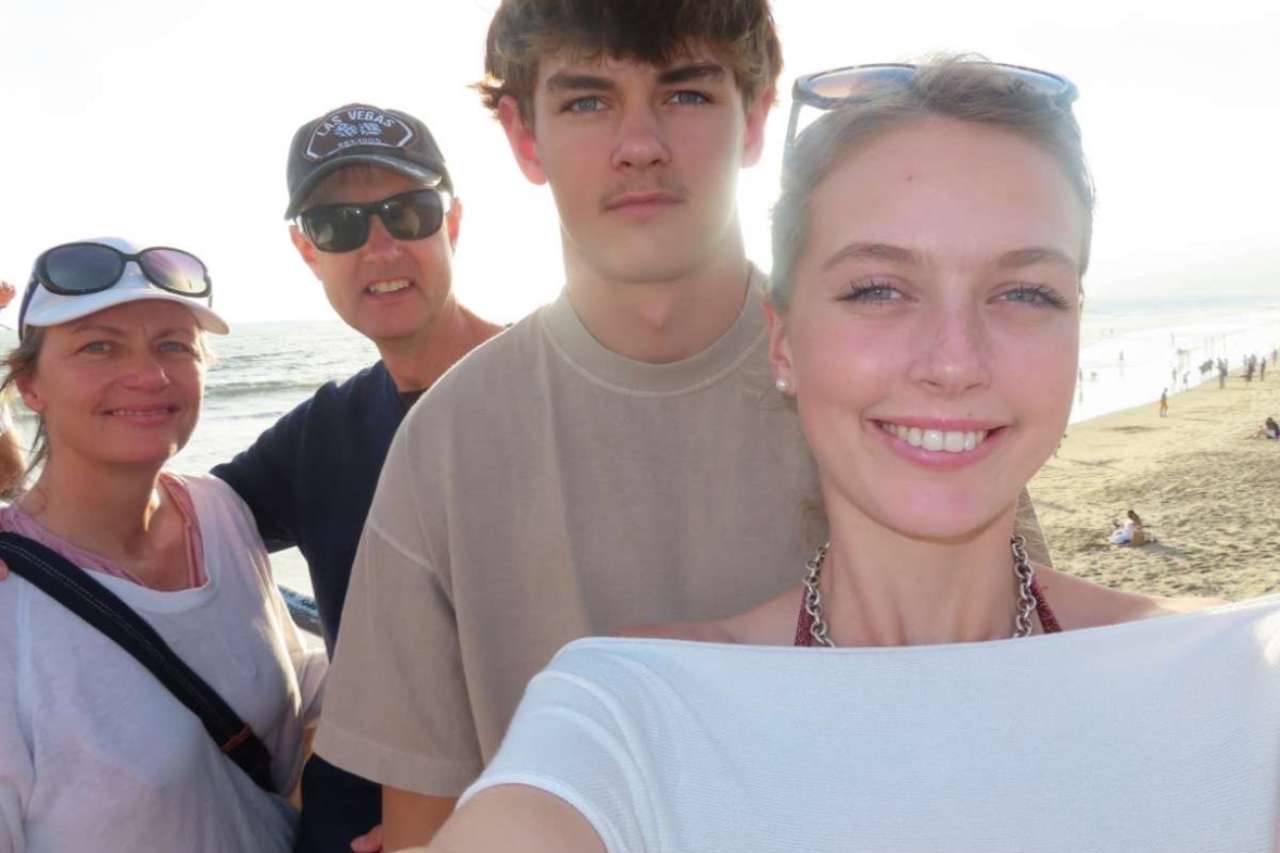
In August 2025, thanks to the financial and emotional support of her TikTok community, Clibborn and her family flew to Los Angeles for surgery. She spent three weeks in town and was even able to meet her friend Allison in person.
Clibborn’s surgery went smoothly, and she recovered quickly. Just two days after the procedure, she felt like her normal self again.
For now, Clibborn’s tumor is under control, and her care continues with chemotherapy coordinated by her UCLA Health neuro-oncologist Robert Chong, MD, PhD. With experimental treatments and potential clinical trials on the horizon, she feels more hopeful than ever.
“I know this isn’t over and that my life will never be normal again,” Clibborn said. “But the one thing cancer has taught me is just to do what you want to do. I can actually live and focus on being the best version of me. I just feel so much more positive now. My first thought isn’t dying anymore. Now it’s like, what am I going to have for breakfast?"






